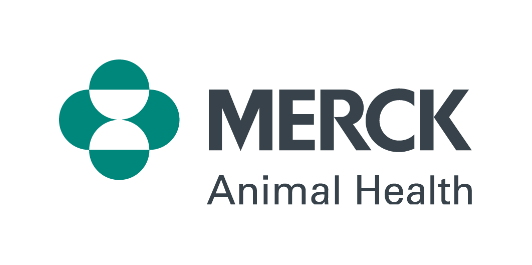New Data from Merck Animal Health Demonstrates Efficacy of Monoclonal Antibody Against Cryptosporidium parvum Infection in Cattle
Study published in Infection and Immunity
Currently no vaccine and few treatments available for cryptosporidiosis, a significant diarrheal disease in both people and animals worldwide
RAHWAY, N.J., September 20, 2023 – Merck Animal Health, known as MSD Animal Health outside of the United States and Canada, a division of Merck & Co., Inc., Rahway, N.J., USA (NYSE:MRK), today announced the publication of a new study that demonstrates the efficacy of monoclonal antibody treatment against Cryptosporidium parvum (C. parvum) inthe journal Infection and Immunity.
The study, “Identification of the Glycopeptide Epitope Recognized by a Protective Cryptosporidium Monoclonal Antibody” is available at https://journals.asm.org/doi/10.1128/iai.00275-23.
Gastrointestinal disease caused by the parasite Cryptosporidium parvum (C. parvum), a zoonotic pathogen, is one of the most significant diseases among young ruminant livestock, particularly neonatal calves. Cryptosporidiosis is also a leading cause of human pediatric death in developing countries and poses a particular threat to immunocompromised individuals. There are no vaccines to prevent cryptosporidiosis and few treatment options in either humans or animals.i,ii
The new data build on previous research that showed that Gp40, a protein expressed by C. parvum, can be identified by monoclonal antibody (mAb) 4E9, which neutralized C. parvum infection in vitro.The published data show that mAb 4E9 reduces disease in vivo in a calf model by binding to the Gp40 protein.
“Currently, there is no convenient way to manage cryptosporidiosis, which has devastating effects on young calves and farms. This underscores the importance of prevention by vaccination,” said Geert Vertenten, global technical director ruminant biologicals, Merck Animal Health. “These data published in Infection and Immunity help us understand what makes protective antibodies work against cryptosporidiosis and may help us make new vaccines or treatments.”
Cryptosporidium parvum contamination can be widespread in areas where ruminants such as cattle, goats and sheep live. Additional treatment options are needed to help reduce Cryptosporidium loads in those environments.
About Merck Animal Health
At Merck, known as MSD outside of the United States and Canada, we are unified around our purpose: We use the power of leading-edge science to save and improve lives around the world. For more than a century, we’ve been at the forefront of research, bringing forward medicines, vaccines and innovative health solutions for the world’s most challenging diseases. Merck Animal Health, a division of Merck & Co., Inc., Rahway, N.J., USA, is the global animal health business of Merck. Through its commitment to The Science of Healthier Animals®, Merck Animal Health offers veterinarians, farmers, pet owners and governments one of the widest ranges of veterinary pharmaceuticals, vaccines and health management solutions and services as well as an extensive suite of connected technology that includes identification, traceability and monitoring products. Merck Animal Health is dedicated to preserving and improving the health, well-being and performance of animals and the people who care for them. It invests extensively in dynamic and comprehensive R&D resources and a modern, global supply chain. Merck Animal Health is present in more than 50 countries, while its products are available in some 150 markets. For more information, visit www.merck-animal-health.com and connect with us on LinkedIn, Facebook, Twitter and Instagram.
Forward-Looking Statement of Merck & Co., Inc., Rahway, N.J., USA
This news release of Merck & Co., Inc., Rahway, N.J., USA (the “company”) includes “forward-looking statements” within the meaning of the safe harbor provisions of the U.S. Private Securities Litigation Reform Act of 1995. These statements are based upon the current beliefs and expectations of the company’s management and are subject to significant risks and uncertainties. There can be no guarantees with respect to pipeline candidates that the candidates will receive the necessary regulatory approvals or that they will prove to be commercially successful. If underlying assumptions prove inaccurate or risks or uncertainties materialize, actual results may differ materially from those set forth in the forward-looking statements.
Risks and uncertainties include but are not limited to, general industry conditions and competition; general economic factors, including interest rate and currency exchange rate fluctuations; the impact of the global outbreak of novel coronavirus disease (COVID-19); the impact of pharmaceutical industry regulation and health care legislation in the United States and internationally; global trends toward health care cost containment; technological advances, new products and patents attained by competitors; challenges inherent in new product development, including obtaining regulatory approval; the company’s ability to accurately predict future market conditions; manufacturing difficulties or delays; financial instability of international economies and sovereign risk; dependence on the effectiveness of the company’s patents and other protections for innovative products; and the exposure to litigation, including patent litigation, and/or regulatory actions.
The company undertakes no obligation to publicly update any forward-looking statement, whether as a result of new information, future events or otherwise. Additional factors that could cause results to differ materially from those described in the forward-looking statements can be found in the company’s Annual Report on Form 10-K for the year ended December 31, 2022 and the company’s other filings with the Securities and Exchange Commission (SEC) available at the SEC’s Internet site (www.sec.gov).
[i] Thomson, S., Hamilton, C.A., Hope, J.C. et al. Bovine cryptosporidiosis: impact, host-parasite interaction and control strategies. Vet Res 48, 42 (2017). https://doi.org/10.1186/s13567-017-0447-0.
[ii] Innes EA, Chalmers RM, Wells B, Pawlowic MC. A One Health Approach to Tackle Cryptosporidiosis. Trends Parasitol. 2020 Mar;36(3):290-303. doi: 10.1016/j.pt.2019.12.016. Epub 2020 Jan 23. PMID: 31983609; PMCID: PMC7106497.
